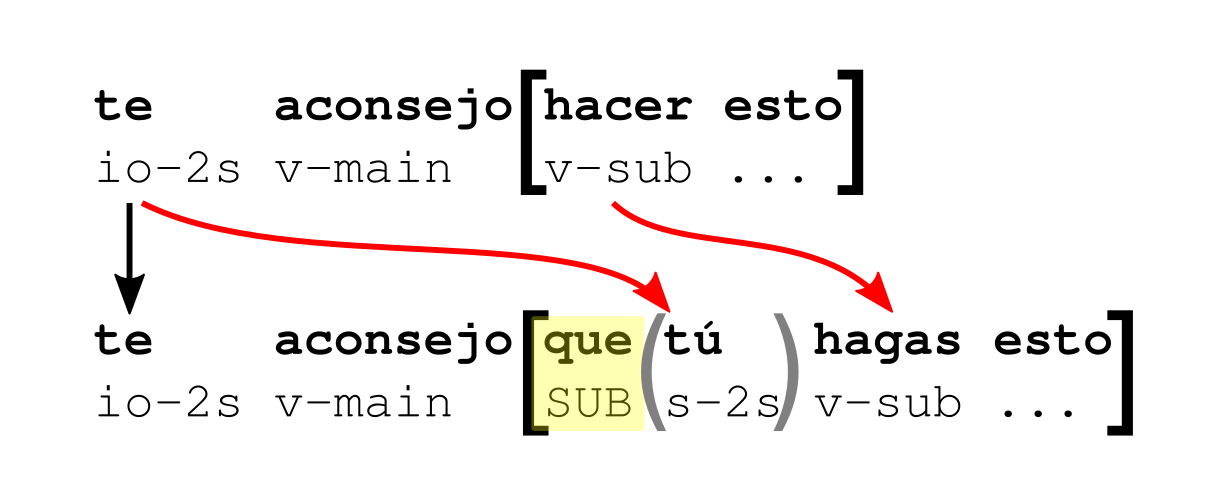When a sentence contains two verbs with different agents must they be separated by a conjunction (e.g. que)? Or, can the second verb be in the infinitive?
For example, in the following sentence the agent of the first verb is you and the agent of the second verb is me:
What do you advise me to do?
I've seen two translations for this sentence:
- ¿Qué me aconsejas hacer?
- ¿Qué me aconsejas que haga?
In the first translation, hacer is in the infinitive; in the second, they are separated by a conjunction (que). I was taught the second form. I would misunderstand the first because it seems to me that the indirect object (me) always applies to the infinitive if there are two verbs. I'd think the first meant: What do you advise to do to me?. But, in this sentence the indirect object (me) should apply to the conjugated verb (aconsejar).
- Are both translations grammatically correct?
- Which sounds more natural to a native speaker?
- If the first is correct then
- how can I know to which verb the indirect object is applied?
- when can the second verb be in the infinitive when there's multiple agents (general rule)?
I'm more interested in understanding the general rule than this example.

